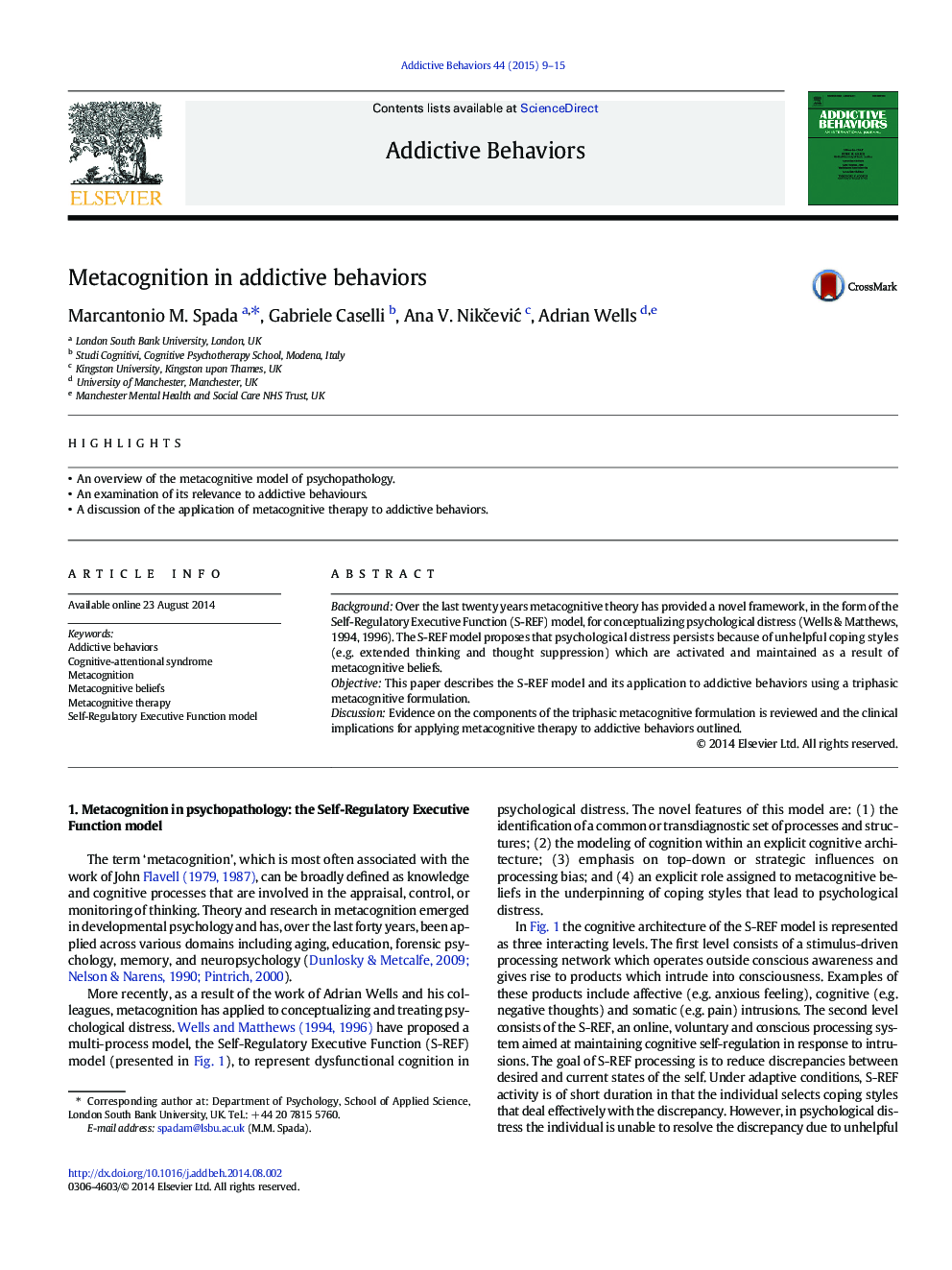| Article ID | Journal | Published Year | Pages | File Type |
|---|---|---|---|---|
| 898698 | Addictive Behaviors | 2015 | 7 Pages |
•An overview of the metacognitive model of psychopathology.•An examination of its relevance to addictive behaviours.•A discussion of the application of metacognitive therapy to addictive behaviors.
BackgroundOver the last twenty years metacognitive theory has provided a novel framework, in the form of the Self-Regulatory Executive Function (S-REF) model, for conceptualizing psychological distress (Wells & Matthews, 1994, 1996). The S-REF model proposes that psychological distress persists because of unhelpful coping styles (e.g. extended thinking and thought suppression) which are activated and maintained as a result of metacognitive beliefs.ObjectiveThis paper describes the S-REF model and its application to addictive behaviors using a triphasic metacognitive formulation.DiscussionEvidence on the components of the triphasic metacognitive formulation is reviewed and the clinical implications for applying metacognitive therapy to addictive behaviors outlined.
